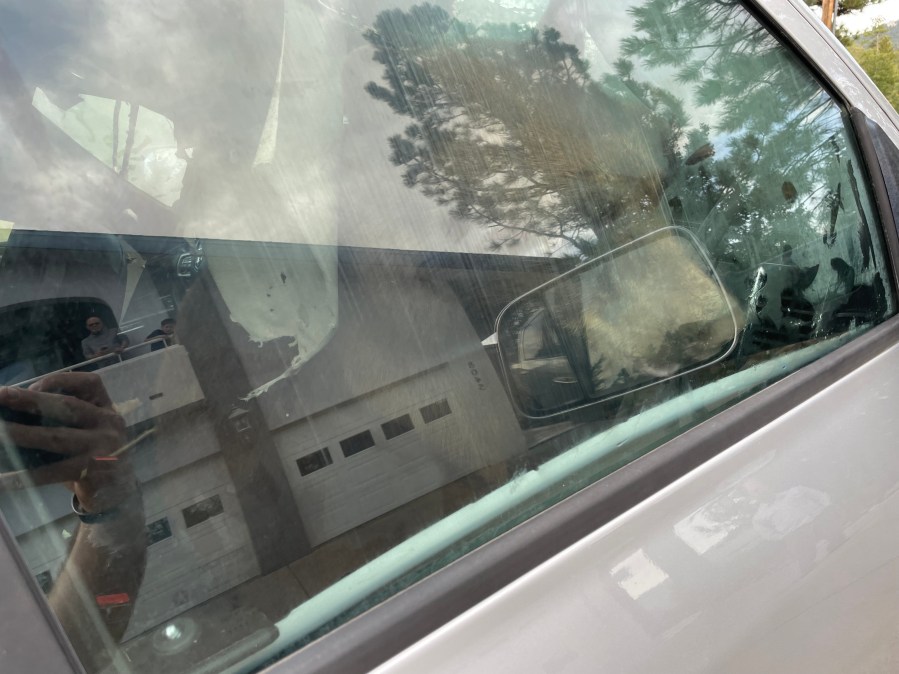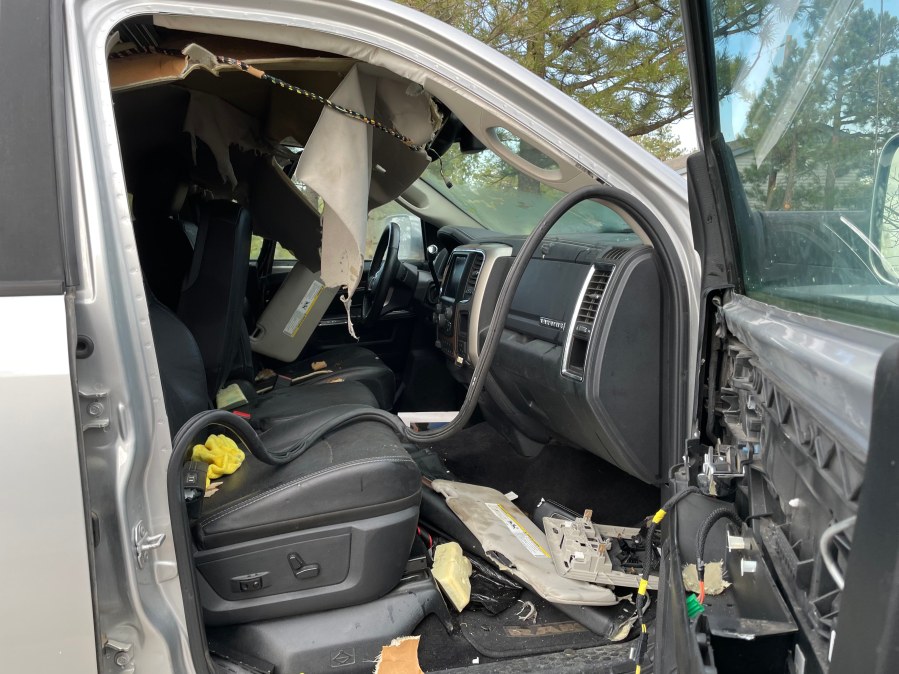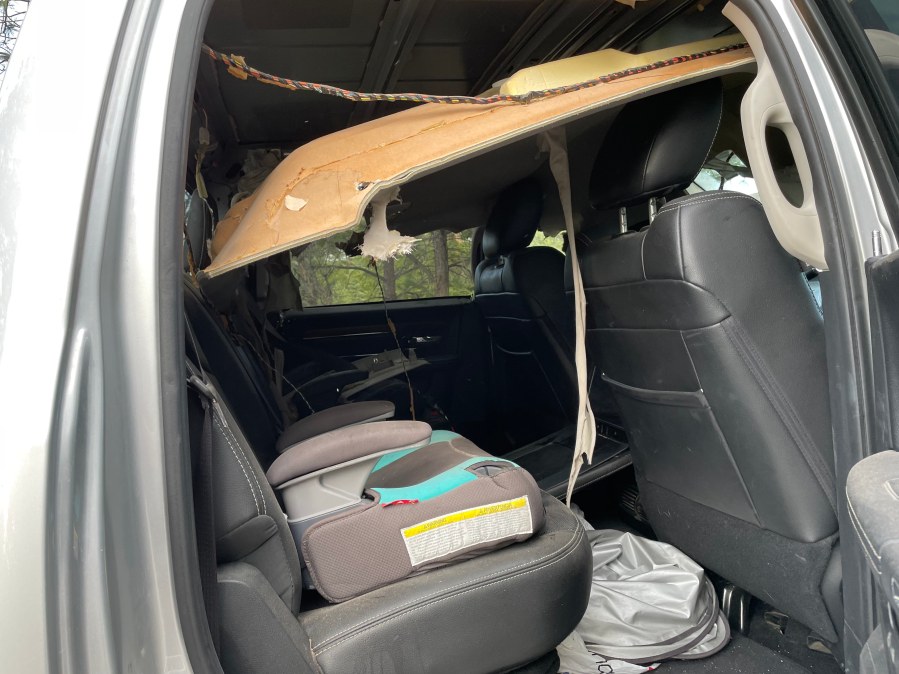LARKSPUR, Colo. (KDVR) — A family in Larkspur was outside doing yard work when a bear broke into their vehicle and trashed it, according to Colorado Parks and Wildlife.
“Bears are really good, they can open up any car doors with their hands,” Colorado Parks and Wildlife spokesman Jason Clay said.
According to Clay, the wind closed the vehicle door behind the bear and it was unable to get out.
“If that door closes, a lot of times they can’t get out and some panic ensues and the inside of the car gets trashed,” he said.
That is exactly what the bear did in this case. Photos taken by the Douglas County Sheriff’s Office show the bear tore apart the inside of the truck.
Wildlife officials believe the bear may have been hunting for snacks dropped in the back seat near a child safety seat.
“Bears are driven by their desire for calories and they follow their nose. They can smell things for up to five miles away so something as simple as chapstick, sunscreen, air fresheners, anything with those scents could potentially entice a bear to take a look inside,” Clay said.
CPW said a Douglas County Sheriff’sdeputy worked with the owner to attach a rope to the door handle, pull it open from the garage and allow the bear to exit the truck. The adult bear got out, looked back briefly and then ran off.
According to CPW, this marks the second bear-related vehicle break-in in Larkspur over the past two weeks. Similar incidents are common throughout the spring and summer in Colorado.
“Bear activity, in general, is picking up and so this could happen anywhere,” Clay said.
How to bearproof your vehicles and campsites
Wildlife officials advise anyone parking in bear territory to lock their vehicles to prevent bears from getting inside. Additionally, clean or remove any items and trash with a strong scent that could attract wildlife.
Here are some tips from CPW to keep your vehicles and campsites secure from bears:
- Lock your doors when you’re away from home and at night.
- Keep the bottom floor windows of your house closed when you’re not at home.
- Do not keep food in your vehicle; roll up windows and lock the doors of your vehicles.
- When car-camping, secure all food and coolers in a locked vehicle.
- Keep a clean camp, whether you’re in a campground or in the backcountry.
- When camping in the backcountry, hang food 100 feet or more from the campsite; don’t bring any food into your tent.
- Cook food well away from your tent; wash dishes thoroughly.
How to bearproof your home
Bear-proofing your home is not only important to your safety but also important for protecting bears.
“Simple changes in human behavior can reap big benefits. If people keep their trash and other potential food items, like birdseed and dog food, off-limits to bears, not only will they protect their homes and property from bear damage, but they’ll also protect bears,” National Wildlife Research Center wildlife biologist Dr. Stewart Breck said.
- Keep garbage in a well-secured location.
- Only put out garbage on the morning of pickup.
- Clean garbage cans regularly to keep them free of food odors: ammonia is effective.
- Use a bear-resistant trash can or dumpster.
- Don’t leave pet food or stock feed outside.
- Bird feeders are a major source of bear/human conflicts. Attract birds naturally with flowers and water baths
- Do not hang bird feeders from April 15 to Nov. 15.
- Do not attract other wildlife by feeding them, such as deer, turkeys or small mammals.
- Don’t allow bears to become comfortable around your house. If you see one, yell at it, throw things at it, make noise to scare it off.
- Secure compost piles. Bears are attracted to the scent of rotting food.
- Clean the grill after each use.
- Clean up thoroughly after picnics in the yard or on the deck.
- If you have fruit trees, don’t allow the fruit to rot on the ground.
- If you keep small livestock, keep animals in a fully covered enclosure. Construct electric fencing if possible.
- Don’t store livestock food outside, keep enclosures clean to minimize odors, and hang rags soaked in ammonia and/or Pine-Sol around the enclosure.
- If you have beehives, install electric fencing where allowed.
- Talk to your neighbors and kids about being bear-aware.
- Keep garage doors closed.



